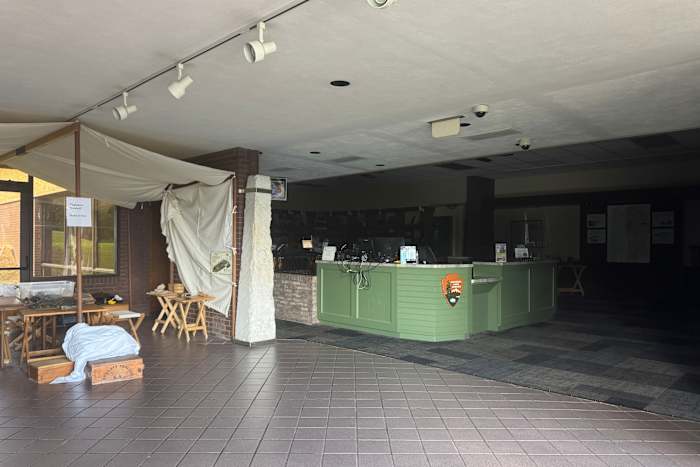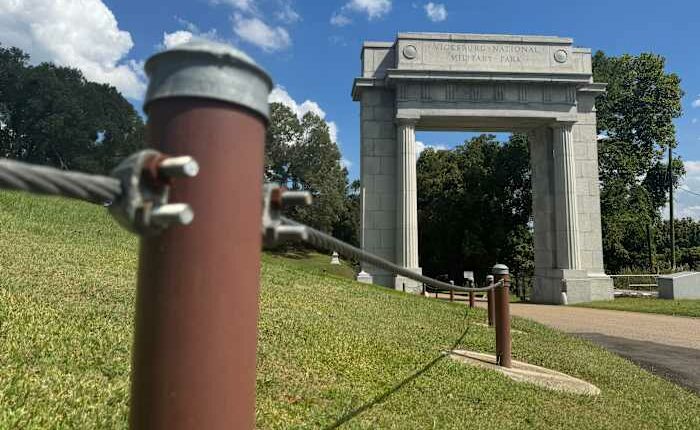Share this @internewscast.com

DENVER – Back in 2018, during a government shutdown, a Mississippi-based nonprofit stepped in to financially support a minimal crew to maintain operations at one of the state’s top cultural sites. This time, they’re ready to do it again for Vicksburg National Military Park.
Reopening Thursday, this historic Civil War battlefield—where troops once struggled for control over the Mississippi River in 1863—is under the auspices of the National Park Service. Thanks to the Friends of Vicksburg National Military Park and Campaign funding $2,000 daily, it remains accessible during the current shutdown.
Bess Averett, the executive director, emphasized that “the prime concern is protecting the park,” which houses over 18,000 veteran graves from six wars as well as those of several former staff members. During shutdowns, without staff, the site is highly susceptible to vandalism and relic hunting.
The Park Service’s contingency approach allows parks to create arrangements with states, Native American tribes, municipal governments, or other entities willing to provide funding to keep these sites operational.
Numerous organizations that back individual national parks nationwide have also mobilized to ensure visitor access. Additionally, West Virginia Governor Patrick Morrisey signed a funding agreement to reopen visitor centers at the state’s two national parks.
While numerous national parks have stayed partially open, visitor centers have closed. With the shutdown, the U.S. Interior Department, which manages the park service, has limited communications, referring people to a general plan for operating its over 400 sites with reduced staff rather than a comprehensive, easy-to-navigate list.
The plan allows parks with certain recreation fees to use that revenue that’s already been collected to provide basic services like restrooms, trash collection and law enforcement.
Hayley Smith and her two children, who were traveling from Louisiana to Arkansas, were among those who trickled into Vicksburg National Military Park on Wednesday but could only could see a lineup of canons and a few monuments. A gate blocking the park’s tour road kept them from exploring most of it. They plan to stop by again on their return trip.
“It’s a huge thing for these kids to be able to see the history and learn about our national parks,” she said.
Another park reopens with help of nonprofit
On the island of Oahu in Hawaii, the gates to the Pearl Harbor National Memorial were closed for several hours Wednesday morning because of the federal shutdown. The popular tourist site opened at 11 a.m. local time, thanks to the nonprofit that partners with the park service to support the memorial.
With fundraising help, the Pacific Historic Parks will keep the site, home to the USS Arizona Memorial, open during the shutdown as long as it can, the group said.
“The way the process works is the Park Service will provide us with an estimated daily cost and then for the number of days that we can afford, we will fund it,” said Pacific Historic Parks President and CEO Aileen Utterdyke.
It will cost an estimated $9,000 a day, which she hopes to cover by reaching out to Hawaii’s governor, the tourism authority, tour operators and other businesses who benefit from the more than 1.7 million yearly visitors to the site.
She said the fundraising plea can be applied to any park nationwide.
Other groups aid visitors in park employees’ absence
At Rocky Mountain National Park in Colorado this week, drivers were waived through without paying an entrance fee. The roads were busy there, and long line formed at a freestanding restroom near a shuttered visitors’ center.
Staffers for the Rocky Mountain Conservancy, which raises money for the park, are helping to welcome people at a visitors’ center just outside the boundaries of the park that remains open under an existing joint agreement with the parks service, spokesperson Kaci Yoh said. The staffers, who operate a gift shop in the center, usually help park rangers who are not currently working there recommend hikes, pass out maps and guide people in how to respect the park’s landscape, Yoh said.
The group plans to add more employees during the shutdown, but they are not authorized to swear children into the junior ranger program, she said. The program allows children who take a pledge to be good stewards of national parks to get a badge.
“We are not rangers. We’re doing the best that we can,” Yoh said.
Staffers for a similar group that supports Grand Canyon National Park are also serving as ambassadors through the park’s gift stores. Proceeds will be used to support the park, just as they do normally, said Mindy Riesenberg, spokesperson for the Grand Canyon Conservancy.
National parks were damaged during past shutdowns
A national group that works to protect national parks urged the Trump administration to close all sites during the shutdown, citing damage in previous shutdowns, including to prehistoric petroglyphs at Big Bend National Park in Texas and slow-growing Joshua trees being cut down in Joshua Tree National Park in California.
“Guidance shouldn’t direct park staff to swing the gates open and walk away,” Theresa Pierno, the president of the National Parks Conservation Association, said in a statement.
States where national parks draw major tourism lobbied to keep them open during past shutdowns.
Utah agreed to donate $1.7 million in 2013 to keep its national parks open. Arizona, Colorado, New York, South Dakota and Tennessee have also donated money to keep parks staffed during previous shutdowns. ___
Associated press journalists Sophie Bates in Vicksburg, Mississippi; Jennifer Sinco Kelleher in Honolulu; Susan Montoya Bryan in Albuquerque, New Mexico; and John Raby in Charleston, West Virginia, contributed to this report.
Copyright 2025 The Associated Press. All rights reserved. This material may not be published, broadcast, rewritten or redistributed without permission.














